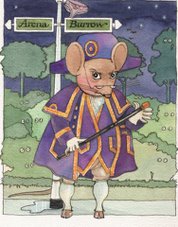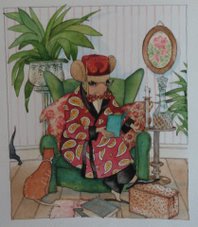My second and third life-changing books are both concerned with the human condition, the first dealing with our relation to the universe we are aware of and the possible infinity of other unknown universes beyond, and the second with our interior state of being. From very different perspectives, they are both meditations on the psyche.
First, THE STORY OF MY HEART, by Richard Jefferies. This Victorian writer, who died tragically young, is perhaps still best remembered for his novel about boyhood, ‘Bevis’. But he was also
On discovering it, I knew at once that it belonged on the ‘very special’ shelf. What first fascinates is the rapturous way Jefferies recalls from years previously his youthful mystically numinous experiences of the beauties of nature and the wonders of the universe. But on re-reading, one is forcibly struck by the courage of Jefferies’ exposition of ideas which were bound to strike his contemporaries as outlandish, atheistic, and possibly even wicked – such as his denial of any evidence of conscious design in nature, and his dismissal of evolution as being no more convincing an explanation for the existence of the universe than creation.
The spectacle of an honest man painfully wrestling to express his deepest thoughts is unusually moving. His vivid descriptions of meditating in isolated country places, drinking in the natural wonders and beauty around him and aspiring through his ‘Lyra prayer’ to ever deeper soul-life, evoke a fervent, simple, and entirely credible pantheism. I had intended to quote some passages from ‘The Story of My Heart’, but choosing one or two is almost impossible, so I urge those who don’t know it already to read this short book for yourselves [you can download it on-line] and you will see what I mean.
My last book is WHAT DO YOU SAY AFTER YOU SAY HELLO? By Eric Berne, M.D. Dr Berne, who died in 1970, was the originator of Transactional Analysis, a mode of therapy which I have found extremely helpful in reorganising my own concepts about my own inner dialogue and what goes on between me and others, as well as between other individuals and groups. During his lifetime, ‘Games People Play’, describing one of the basic transactional gambits identified by TA, was a best seller, both in the
Among many unusual qualities, Eric Berne had a keen sense of humour and a dry wit which he didn’t hesitate to apply in his professional practice and writing. His last book, published posthumously, has the sub-title ‘The Psychology of Human Destiny’. With such an ambitious scope it is quite long, but mostly easy to read and in places highly entertaining. He is a dab hand at the unexpected pay-off line. His wry comments on some of the traditional fairy tales, such as Little Red Riding Hood and Sleeping Beauty, are hilarious and I recommend them to anyone who is feeling in the dumps and needs cheering up.
At the end of the book we discover – as you might have guessed – that the answer to the title question is ‘whatever you choose’ - but only after a lot of hard work has been done to free up your options. If there is one therapy book that most people would really benefit from as well as enjoy, this is it.


2 comments:
Geoffrey Household : 'Rogue Male'.
A dream.
I started my world travels in the hope of being someone who might be 'In High Places'.
Dougal Haston was a bold scot in high places.
And ;
Derrida spoke a beautiful poetic piece at the funeral of Levinas who was infamous for the infinity of the infinity.
Is our BoldScot a mountaineer?
Is our Anticant a secret admirer of the postmodern?
The mind boggles.
There is more to these silly guys than meets the eye.
Post a Comment